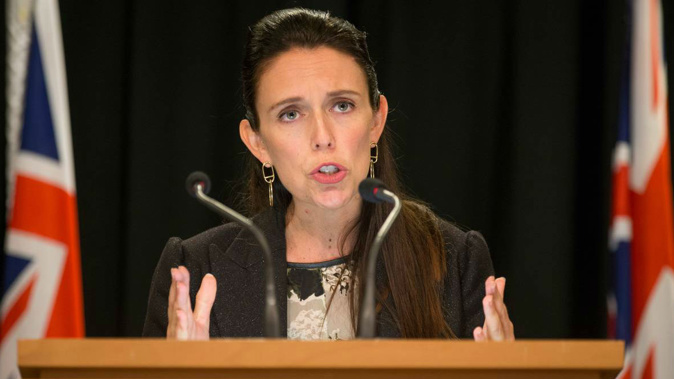
A former Russian spy who claims he was poisoned in New Zealand more than a decade ago after arriving her on a fake passport is being asked to provide proof it happened.
However, Prime Minister Jacinda Ardern says the passage of time makes it difficult to verify whether Boris Karpichkov faced an attempted poisoning on Queen Street in the mid-2000s or indeed whether he was even a former KGB agent.
Karpichkov told the Good Morning Britain show he had powder thrown in his face by someone dressed as a beggar in Auckland in 2006.
Speaking after a Commonwealth Heads of Government Meeting leaders retreat overnight in England, Ardern said the Government wasn't in a position to know whether he was telling the truth or not.
She said they had a statement, but no evidence.
"It's disappointing that a police complaint was not laid at the time because it makes it very difficult for us to undertake that investigation."
She said Karpichkov had applied to stay in New Zealand and was given visas while that was processed but was unsuccessful.
She would not say if there were any former Russian spies in New Zealand now because she did not comment on intelligence and security issues.
"What I would say is New Zealand is not immune to intelligence gathering."
Ardern said given 12 years have passed since the alleged incident, it was very difficult for the Government to undertake the kind of investigation you might expect.
She added that Karpichkov's claims didn't suggest an attack similar to what happened in Salisbury would happen in New Zealand.
Karpichkov, a former senior KGB agent, spent 15 months in New Zealand in 2006 and 2007 after working as a double agent in the 1990s and passing information to the West.
He claims the poisoning attack, which is alleged to have happened in November 2006 on Queen St when someone dressed as a homeless person threw powder in his face, made all his body hair fall out and caused him to lose 30kg.
Speaking last month, Karpichkov told Good Morning Britain he received a message by "burning telephone" on February 12 from a person working for the Russian secret service FSB, the successor to the KGB.
The message warned that he, Sergei Skripal, and others would be targeted, but Karpichkov did not report it to authorities because he did not take it seriously.
But he was shocked when Skripal, a former Russian spy and informant for Britain's foreign intelligence service, and his daughter were attacked with a nerve agent on March 4 in the southern England city of Salisbury.
Foreign Minister Winston Peters said at the time he had "grave concerns" about the use of the nerve agent.
Asked who he thought was responsible for the attack, Karpichkov said: "The Russian Secret Service, FSB specifically."
Speaking this morning, Ardern said the question of whether the Karpichkov incident was a Salisbury style attack was "speculative".
"Obviously that's not what the outcome in this case suggests given that was a nerve agent of high purity in Salisbury that does not seem to be what's talked about here."
Asked if a Salisbury style attack was possible now, she said that was why New Zealand had taken a strong position on the use of chemical weapons.
"It was illegal, it was abhorrent but the case of 12 years ago doesn't on the face of it suggest that's what was in play. Again, it's difficult for us to undertake an investigation given the length of time and that it wasn't formally reported."
Peters today cast doubt on Karpichkov's claims given it was never raised with authorities at the time or verified.
"If he's not lying, why did he not make the claim back then and bring it to our attention if it was so urgent."
Peters said he knew nothing about Karpichkov "apart from the fact he's come out of the woodwork a decade after the event".
"I'm not rubbishing everything he said, I'd like some evidence and proof of what he's saying as being a clear and present danger at this time in 2018 for a country called New Zealand."
Take your Radio, Podcasts and Music with you









